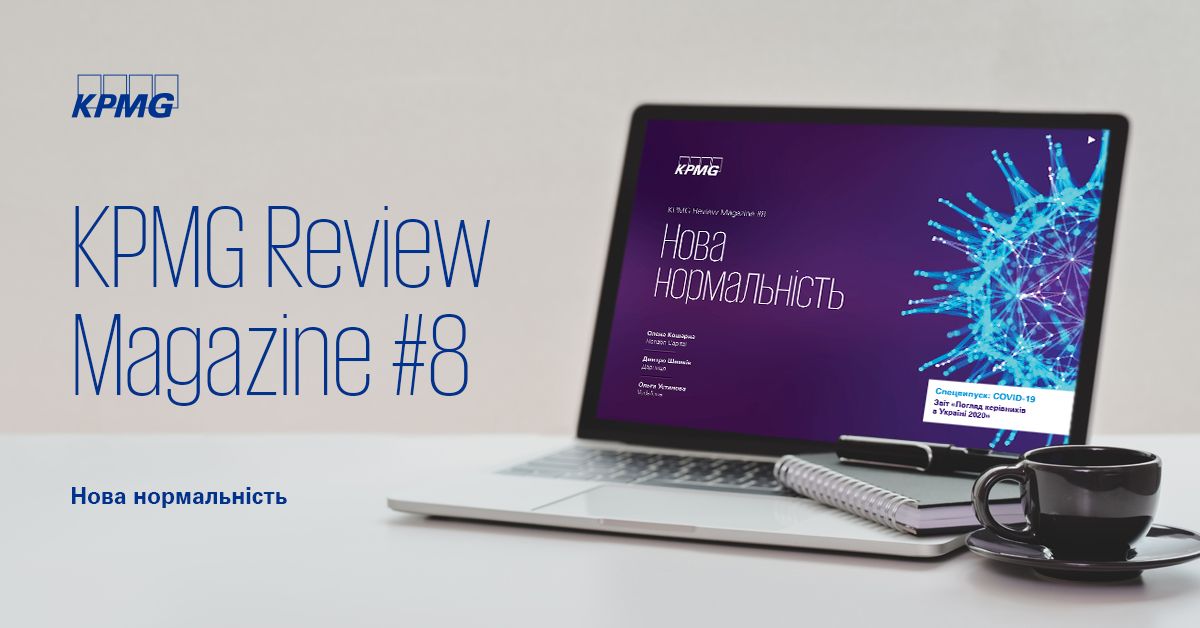The crisis caused by COVID-19 is slowing down the organic growth of business. Industries dependent on political factors, trade disputes between countries and other geopolitical changes have suffered the most. Given that consumers tend to postpone purchasing decisions, it is becoming increasingly clear that profit growth will be a challenge. Growth may also be constrained by difficulties in attracting talent or a lack of investment in innovation. In both cases, especially for companies with limited capital, the solution may be M&A.
Another trend worth noting is the increasing importance of M&A deals for business survival. Although interest rates in Ukraine have fallen sharply, questions remain over the ability of many companies, including SMEs, to service or refinance existing debt and access affordable new debt as a means of financing working capital. It is likely that we will see some lenders raise interest rates to offset the estimated increased lending risk in certain sectors or freeze lending to some sectors (such as renewables) altogether. This will mean that for some companies it will be necessary to raise funding through M&A deals. In any event, sellers must be well prepared, both to attract an investor and for the transaction itself.
Download the eighth issue of KPMG Review Magazine "A new normal" (PDF 4 MB).
They should:
- Rethink the company's strategy
We should not go back to what we did before but sum up the real results and ask ourselves if they make sense in the new reality. In today's challenging environment, where fears of viruses, travel restrictions and economic shocks prevail, it is very important to adjust strategy and communication with customers.
- Protect their main income and take care of their customers now
You need to listen to your main customers and meet their needs. This crisis offers a unique opportunity to build trust with customers and build a business around their needs. It also means understanding how they want to buy and receive a product or service. The ability to quickly adapt existing goods, offers and services to new consumer needs becomes important.
- Accelerate digitalization
Those companies that have the necessary digital infrastructure and experience in organising online business processes will fully enter the era of the new reality. Your IT infrastructure should allow you to switch to remote operations in one day without losing efficiency.
- Transform the processes of personnel development management during remote work
Employers have realised that they could effectively manage remote teams and saw the potential to reduce real estate costs. This hastened the arrival of a longawaited trend: the separation of human resources from the office location.
- Adjust to / refocus on new niches – the digital economy
People still need food, clothing, equipment and entertainment. And business must meet these needs. The new way of life will probably require some adjustments, but will not eliminate our needs. Only forms, methods and approaches to consumption will change. Most companies are refocusing on new niches, and it may be worth thinking about creating such niches from scratch.
Industries dependent on political factors, trade disputes between countries and other geopolitical changes have suffered the most.
The most important factors that affect the success of a deal in the post-Covid era, remain exactly as they have always been:
- Reasonable price expectations. If seller’s and investor’s expectations diverge significantly, the deal won’t be consummated. Pricing a business within the market range greatly improves the chances of concluding a deal. To better understand the principles by which investors will evaluate your business, you should turn to external consultants. They will also help identify the strengths and weaknesses of the business that affect the price range in today's market environment and help structure the deal to maximise the value of the business to the seller.
- Data consistency. During the 4–6 months of the M&A process, an investor would like to see figures, messages and answers to questions that do not contradict each other. To achieve this, it is necessary to collect and process a huge amount of information about the company, analyse it in detail and conduct cross-checks for reasonableness and consistency. In our experience, without consultants, the operational workload and lack of relevant skills and/or experience, it is impossible for your existing team to do it alone.
- Quality of marketing materials. There are usually three key documents that are prepared during the transaction: an advertising teaser, an information memorandum and a presentation for management. Each of them has its own specific purpose. A teaser is needed to draw investors' attention to the most important information: key financial, operational and market information. The purpose of the information memorandum is to present in a logical and convincing way the financial aspects, operations, business and prospects of each aspect of the company. It helps the investor to make an non-binding offer. A management presentation is a document that helps management prepare the groundwork to convince investors in a face-to-face meeting that a business can achieve even better results and have a brighter future, with or without the help of an investor. Preparation of these documents requires significant effort, understanding of what investors are looking for and an ability to present the information comprehensively, logically and in an easy to follow document. This task should be delegated to consultants with the relevant experience and track record.
- A management presentation is a document that helps management prepare the groundwork to convince investors in a face-to-face meeting that a business can achieve even better results and have a brighter future, with or without the help of an investor. Preparation of these documents requires significant effort, understanding of what investors are looking for and an ability to present the information comprehensively, logically and in an easy to follow document. This task should be delegated to consultants with the relevant experience and track record.
- Right investor base. Knowing the right investors and having proper access to investors with the most potential is of paramount importance for generating maximum interest in the business. Creating appropriate competition ultimately leads to a higher selling price. Experience has shown that if you do not have access to investors, your teaser will often end up in the wrong mailbox and will be ignored or deleted immediately. Consultants, especially from global firms, can be an essential asset here, as they build and maintain longstanding relationships with key executives at both financial and strategic investors in different countries.
- Preparation for scrutiny by the investor. No one buys a business without a comprehensive due diligence review. So, whatever problems a business might try to hide, there is every chance that the investor will find them. Knowing in advance what risks and vulnerabilities such a comprehensive analysis may reveal, can allow business owners to have time to develop a strategy to eliminate and reduce risk. At the very least, it can help sellers understand how these risks could potentially affect the value of a business and how best to explain them to investors if and when they need to. The role of the consultant is to help the seller identify these potential risks, for example, by conducting a vendor due diligence review of the seller or providing vendor support services to the seller.




